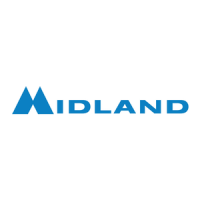www.roadwidener.com
18
Model SP-8 &10
5. operAtIon
5.1 operAtIonAl sAfety
^ Keep bystanders away from equipment while in
use.
^ Always wear face or eye protection, ear protection,
safety shoes, and other protective equipment
appropriate for the job.
^ Do not operate, work on or around this machine
while under the inuence of alcohol, drugs or if
feeling ill.
^ Keep clear of moving machinery at all times.
^ Turn off machine before exiting operator station.
^ You must inspect, maintain and service equipment
regularly for safe and reliable operation.
^ Operate equipment safely. Read and understand
this manual before operating machine.
^ It is your responsibility to operate this machine
safely. You must be familiar with machine and all
safety practices before use.
^ Do not allow untrained or unqualied people to
operate machine.
^ Wear close tting clothing and safety equipment
that is appropriate to the job. Do not wear music
or radio headphones while operating equipment.
5.2 stArtup proCedure
NOTICE
Prevent equipment damage.
Do not drive machine or increase engine
rpm at low operating temperature.
^ WARNING
Carbon monoxide hazard.
Do not operate engine with machine in an
enclosed building or conned area.
Avoid actions or areas that expose you and
others to carbon monoxide
^ WARNING
Prevent serious injury or death.
Before performing inspections, service or
maintenance:
• Park machine on rm, level surface and
engage parking brake.
• Switch engine off.
• Close and lock control panel cover.
• Chock tires.
Check the following items before operating machine:
• Check fuel, engine oil, coolant and hydraulic oil
levels. Add uids if low.
• Check conveyor belt for damage or missing parts.
• Check belt scraper adjustment. Adjust if needed.
• Check side board rubber wear. Replace if worn.
• Check engine fuel lter. Drain water or debris.
• Check air lter restriction gauge.
• Inate tires to 120 psi.
• On SP-10 and SPD-10, rear tires are lled with
calcium ballast. Use suitable equipment to inate
tires.
• Tighten wheel lugs to 400-500 lb/ft of torque.
• Inspect tires for signs of wear or damage.
• Check hydraulic components for proper operation.
• Visually inspect engine belts, fan, alternator and
battery.
• Inspect hydraulic hoses for signs of wear or
damage.
• Verify all guards, covers, shields and access doors
are installed and properly latched.
• Check for oil and coolant leaks.
Refer to engine manufacturers’ manual provided for
engine pre-start procedure, routine maintenance and
additional safety information.
While operating machine, operator must be seated
with seat belt properly fastened.

